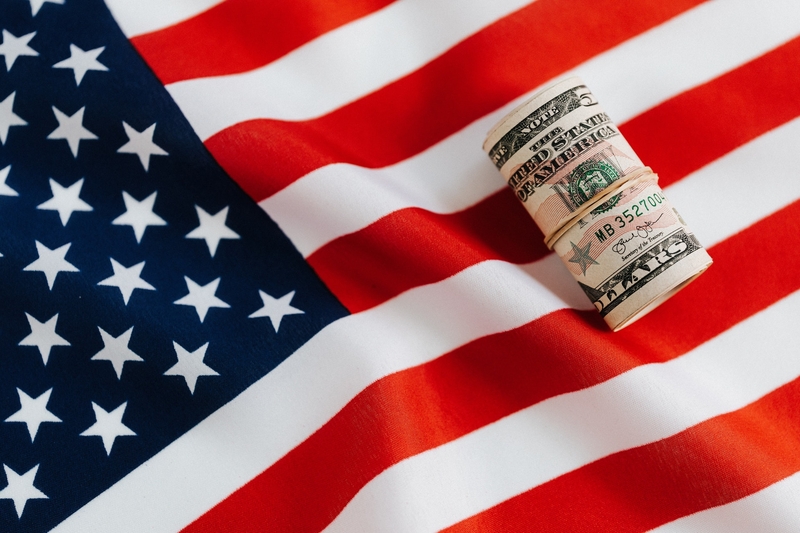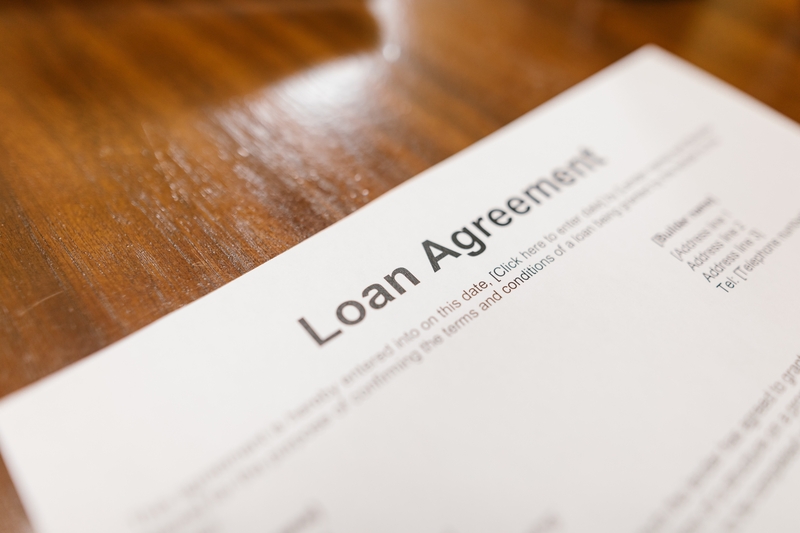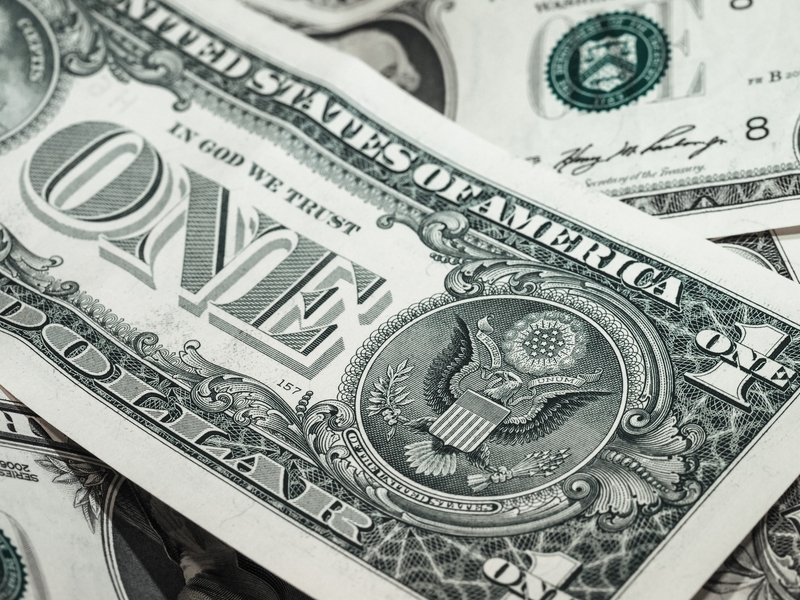The Ultimate Guide to SBA 7(a) Loan Program: Everything You Need to Know
"The SBA 7(a) loan program is an excellent resource for small businesses looking to expand, purchase equipment or inventory, or simply get a little extra capital to help manage cash flow." - Mark Cuban
Brief Insight
SBA 7(a) Loan Program is a loan program for small businesses offered by the U.S. Small Business Administration (SBA). It provides funding for a variety of business purposes, including working capital, equipment purchases, real estate acquisition, and business expansion. The loans are partially guaranteed by the SBA, making them easier for small businesses to qualify for and obtain.

PHOTO: https://www.pexels.com/uk-ua/@karolina-grabowska/
The Essential Guide to SBA 7(a) Loan Program: How it Works
The SBA 7(a) Loan Program is a loan program offered by the U.S. Small Business Administration (SBA) that provides funding for a variety of business purposes, including working capital, equipment purchases, real estate acquisition, and business expansion. The loans are partially guaranteed by the SBA, which makes them easier for small businesses to qualify for and obtain.
The program is designed to help small businesses that might not otherwise qualify for traditional bank loans due to their limited credit history, lack of collateral, or other factors. With the SBA's partial guarantee, lenders are more willing to lend to small businesses, as they face less risk in case of default.
The maximum loan amount under the SBA 7(a) program is $5 million, and the repayment term can be as long as 25 years for real estate loans and up to 10 years for working capital loans. The interest rates on the loans are negotiated between the borrower and the lender, but they are subject to SBA limits.
To qualify for an SBA 7(a) loan, a business must meet certain eligibility requirements, such as being a for-profit business operating in the United States, having a certain size and net worth, and being able to demonstrate the ability to repay the loan.
Overall, the SBA 7(a) Loan Program is a valuable resource for small businesses that need funding to grow and expand, but may not have the collateral or credit history to obtain traditional bank loans.
Interesting Facts
The SBA 7(a) Loan Program is the SBA's flagship loan program, and it has helped millions of small businesses access financing since its inception in 1953.
The SBA doesn't actually lend money directly to small businesses through the 7(a) program. Instead, the program provides a government guarantee to approved lenders, which encourages them to lend to small businesses that might not otherwise qualify for traditional financing.
The Evolution of SBA 7(a) Loan Program: A Look at Its History
The SBA 7(a) Loan Program was created in 1953 when the U.S. Small Business Administration (SBA) was established as an independent agency of the federal government. The purpose of the SBA was to provide support and assistance to small businesses, which were seen as a vital engine of economic growth and job creation.
The SBA 7(a) Loan Program was one of the first loan programs created by the SBA, and it has since become one of the most popular and widely used programs. Over the years, the program has evolved and expanded to meet the changing needs of small businesses.
Initially, the SBA 7(a) program provided loan guarantees of up to $250,000 to small businesses that were unable to obtain loans from traditional banks. Over time, the program has been modified to increase the maximum loan amount and to expand the types of businesses and purposes for which loans can be used.
Today, the SBA 7(a) Loan Program provides loan guarantees of up to $5 million to small businesses for a variety of purposes, including working capital, equipment purchases, real estate acquisition, and business expansion. The loans are partially guaranteed by the SBA, which makes them easier for small businesses to qualify for and obtain.
Overall, the SBA 7(a) Loan Program has played a vital role in supporting small businesses and driving economic growth in the United States since its creation nearly 70 years ago.

PHOTO: https://www.pexels.com/uk-ua/@karolina-grabowska/
Funding the SBA 7(a) Loan Program: A Breakdown of Fees, Appropriations, and Financing Mechanisms
The SBA 7(a) Loan Program is funded through a combination of government appropriations and fees charged to borrowers and lenders. The SBA does not directly lend money to small businesses but instead provides loan guarantees to lenders, which can be banks, credit unions, or other financial institutions.
When a small business applies for an SBA 7(a) loan, the lender evaluates the application and decides whether to approve the loan. If the loan is approved, the lender can apply to the SBA for a loan guarantee, which covers a portion of the loan amount in case of default. The guarantee amount can range from 50% to 85% of the loan amount, depending on the size and purpose of the loan.
In exchange for the SBA guarantee, lenders are required to pay a fee to the SBA, which can be passed on to the borrower as part of the loan cost. The fee is calculated as a percentage of the guaranteed portion of the loan, and it varies depending on the loan amount and maturity.
The SBA also charges an annual servicing fee to lenders for each outstanding loan in their portfolio. The fee is calculated as a percentage of the outstanding balance of the loan, and it is intended to cover the cost of monitoring and servicing the loan.
In addition to the fees charged to lenders, the SBA also receives appropriations from the federal government to support its programs, including the 7(a) Loan Program. The amount of funding varies from year to year and depends on the overall budget priorities of the government.
Overall, the SBA 7(a) Loan Program is funded through a combination of fees charged to borrowers and lenders, as well as government appropriations. This funding model allows the program to operate in a self-sustaining manner, while still providing valuable support and assistance to small businesses.
Last Trends
Digitization: The application process for SBA 7(a) loans have become increasingly digitized, with the aim of making it more accessible and efficient for borrowers.
New initiatives and programs: The SBA has introduced new programs and initiatives, such as the Community Navigator Pilot Program and the Targeted EIDL Advance, to provide additional funding and support to businesses in need.
Administering the SBA 7(a) Loan Program: The Role of the SBA and its Lender Partners
The SBA 7(a) Loan Program is administered by the U.S. Small Business Administration (SBA), a federal government agency whose mission is to support and assist small businesses. The SBA works with a network of lenders, which can be banks, credit unions, or other financial institutions, to provide loan guarantees to small businesses.
The process of obtaining an SBA 7(a) loan begins with the small business applying to a lender. The lender evaluates the application based on its own credit standards, as well as the SBA's eligibility requirements. If the loan is approved, the lender can apply to the SBA for a loan guarantee, which covers a portion of the loan amount in case of default.
The SBA also provides guidance and support to lenders and small businesses throughout the loan process. This can include training for lenders on SBA loan programs and requirements, as well as technical assistance for small businesses in preparing loan applications and developing business plans.
In addition to loan guarantees, the SBA also offers other programs and services to support small businesses. These include counseling and training programs, government contracting assistance, and disaster assistance loans.
Overall, the SBA 7(a) Loan Program is administered by the SBA in partnership with a network of lenders. The SBA provides loan guarantees and other support to help small businesses obtain financing, while the lenders are responsible for originating and servicing the loans. Through this partnership, the SBA 7(a) Loan Program has helped thousands of small businesses access the capital they need to grow and thrive.

PHOTO: https://www.pexels.com/uk-ua/@mikhail-nilov/
Services Provided by the SBA 7(a) Loan Program: Loan Guarantees, Technical Assistance, and More
The SBA 7(a) Loan Program provides a range of services to help small businesses access financing and succeed in their endeavors. These services include:
- Loan Guarantees: The primary service provided by the SBA 7(a) Loan Program is loan guarantees. When a small business applies for an SBA 7(a) loan, the lender evaluates the application and decides whether to approve the loan. If the loan is approved, the lender can apply to the SBA for a loan guarantee, which covers a portion of the loan amount in case of default. This guarantee reduces the lender's risk, making it more likely that they will approve the loan.
- Technical Assistance: The SBA also provides technical assistance to small businesses to help them navigate the loan process and develop their business plans. This can include one-on-one counseling, workshops, and other training programs to help small businesses grow and succeed.
- Government Contracting Assistance: The SBA also provides assistance to small businesses seeking to do business with the federal government. This can include help with registration, bidding on contracts, and complying with government regulations.
- Disaster Assistance: The SBA provides low-interest disaster loans to small businesses and homeowners affected by natural disasters, such as hurricanes, floods, and wildfires. These loans can help small businesses recover from the financial impact of a disaster and get back on their feet.
- Surety Bonds: The SBA offers surety bond guarantees to small businesses that need to obtain bonding for construction or other projects. These guarantees help small businesses access bonding, which can be a requirement for certain types of contracts.
Overall, the SBA 7(a) Loan Program provides a range of services to help small businesses access financing, navigate the loan process, and grow their businesses. Through its loan guarantees, technical assistance, government contracting assistance, disaster assistance, and surety bond guarantees, the program has helped thousands of small businesses succeed and thrive.
Interesting Facts
SBA 7(a) loans can be used for a variety of purposes, including working capital, inventory, equipment, real estate, and even refinancing existing debt.
While the SBA 7(a) program is open to a wide range of businesses, some industries are excluded from eligibility, including lending and investment companies, speculative businesses, and pyramid sales plans.
Eligibility Requirements for the SBA 7(a) Loan Program: Who Qualifies for Financing?
To be eligible for the SBA 7(a) Loan Program, a small business must meet certain requirements set by the Small Business Administration (SBA). These requirements include:
- Size: The business must be small, as defined by the SBA. The size standards vary by industry, based on the number of employees or annual revenue.
- Purpose: The loan must be for a legitimate business purpose, such as financing working capital, purchasing equipment, or buying real estate.
- Use of Funds: The funds must be used for business purposes, not for personal expenses.
- Repayment Ability: The business must demonstrate the ability to repay the loan based on its financial history and projections.
- Creditworthiness: The business and its owners must have good credit and a solid financial history.
- Collateral: The business must have sufficient collateral to secure the loan, although the SBA does not require collateral for all loans.
- Business Ownership: The business must be owned and operated by a U.S. citizen or legal resident, and must be located and operated within the United States or its territories.
In addition to these general requirements, there are certain types of businesses that are not eligible for SBA 7(a) loans. These include businesses involved in illegal activities, speculation, or investment, as well as businesses that have defaulted on federal loans in the past.
Overall, the SBA 7(a) Loan Program is designed to support small businesses that have the potential for long-term success but may have difficulty obtaining financing through traditional channels. By providing loan guarantees and other support, the program helps small businesses access the capital they need to grow and thrive.

PHOTO: https://www.pexels.com/uk-ua/@rodnae-prod/
The Benefits of the SBA 7(a) Loan Program: Why Small Businesses Should Consider SBA Financing
The SBA 7(a) Loan Program offers a number of advantages and benefits for small businesses. Here are some of the key advantages of the program:
- Access to Capital: The SBA 7(a) Loan Program provides small businesses with access to capital that they may not be able to obtain through traditional lending sources. This can help businesses grow, hire employees, and expand their operations.
- Lower Down Payments: The SBA 7(a) Loan Program allows businesses to make lower down payments than they would with traditional loans. This can be especially helpful for businesses that may not have a lot of cash on hand.
- Longer Repayment Terms: The SBA 7(a) Loan Program offers longer repayment terms than many traditional loans, which can help businesses manage their cash flow and make loan payments more affordable.
- Competitive Interest Rates: The interest rates on SBA 7(a) loans are competitive with those of traditional loans and may be lower in some cases.
- Flexible Use of Funds: Businesses can use the funds from an SBA 7(a) loan for a variety of purposes, including working capital, purchasing equipment or inventory, and refinancing existing debt.
- Technical Assistance: The SBA offers a variety of technical assistance services to small businesses, including counseling, training, and assistance with business planning.
- Loan Guarantees: The SBA provides loan guarantees to lenders, which can help small businesses obtain loans that they may not have been able to otherwise.
Overall, the SBA 7(a) Loan Program provides small businesses with a range of benefits and advantages that can help them grow and succeed. Whether businesses need capital for working capital, expansion, or other purposes, the program offers a flexible, affordable, and accessible financing option.
Last Trends
Increased demand: The COVID-19 pandemic has led to a surge in demand for SBA 7(a) loans, as many businesses have struggled to stay afloat and need financing to cover expenses.
Focus on underserved communities: The SBA has placed a greater emphasis on serving underserved communities and minority-owned businesses through various initiatives and programs.
Considering the Drawbacks: Disadvantages and Limitations of the SBA 7(a) Loan Program
While the SBA 7(a) Loan Program offers many benefits, there are also some disadvantages and limitations to consider. Here are some of the key drawbacks to the program:
- Lengthy Application Process: The SBA loan application process can be lengthy and time-consuming, requiring detailed documentation and financial statements. This can be challenging for businesses that need funding quickly.
- Collateral Requirements: The SBA typically requires collateral for 7(a) loans, which can be a barrier for some businesses, especially those that don't have a lot of assets to pledge.
- Personal Guarantees: The SBA may require personal guarantees from business owners or other individuals associated with the business, which can put their personal assets at risk.
- Fees and Costs: The SBA charges fees for 7(a) loans, including a guarantee fee and servicing fees. These costs can add up over the life of the loan.
- Credit Requirements: While the SBA 7(a) Loan Program is designed to help businesses that may not qualify for traditional financing, there are still credit requirements that must be met. This can be a challenge for businesses with poor credit or limited credit history.
- Use Restrictions: While the SBA 7(a) Loan Program offers flexibility in terms of how funds can be used, there are some restrictions on how the funds can be used. For example, the funds cannot be used for investment or speculative purposes.
- Loan Limits: The SBA sets limits on the amount of money that can be borrowed through the 7(a) program, which may not be enough for some businesses with larger funding needs.
Overall, while the SBA 7(a) Loan Program can be a valuable financing option for many small businesses, there are some limitations and drawbacks to consider. Businesses should carefully weigh the costs and benefits of the program before deciding whether to apply for a loan.

PHOTO: https://www.pexels.com/uk-ua/@pixabay/
Step-by-Step Guide: How to Apply for an SBA 7(a) Loan Program
Here's a detailed guide on how to apply for an SBA 7(a) Loan Program:
- Determine if you're eligible: Before applying for an SBA 7(a) loan, you need to determine if you meet the eligibility requirements. These include having a for-profit business, operating within the United States or its territories, having invested equity in the business, and not being delinquent on any government debts.
- Find a lender: The SBA does not directly lend money, so you'll need to find a lender that participates in the SBA 7(a) program. You can search for SBA-approved lenders on the SBA website.
- Gather your documents: The application process for an SBA 7(a) loan requires extensive documentation. You'll need to gather financial statements, business and personal tax returns, a business plan, and other documentation that demonstrates your ability to repay the loan.
- Complete the loan application: Once you have your documentation in order, you can begin filling out the loan application. This will require information about your business, its history, and its financial performance.
- Provide collateral and personal guarantees: The SBA may require collateral for the loan, such as property or equipment, and may also require personal guarantees from business owners or other individuals associated with the business.
- Wait for approval: Once you've submitted your application and all the required documentation, you'll need to wait for the lender to review your application and make a decision. This can take several weeks or longer.
- Close the loan: If your loan is approved, you'll need to sign the loan agreement and provide any additional documentation requested by the lender. Once all the paperwork is completed, the funds will be disbursed to your business.
It's important to note that the application process for an SBA 7(a) loan can be complex and time-consuming. Consider working with a lender that has experience with SBA loans to help guide you through the process.
- The SBA 7(a) Loan Program is a government-backed loan program designed to help small businesses access financing.
- The program provides loans of up to $5 million for a variety of business purposes, including working capital, equipment purchases, and real estate.
- SBA 7(a) loans are provided by SBA-approved lenders, not directly from the SBA.
- The program requires extensive documentation, including financial statements, tax returns, and a business plan.
- SBA 7(a) loans typically have longer repayment terms and lower interest rates than other types of financing, making them an attractive option for small businesses.
- Eligibility requirements include being a for-profit business, operating within the United States or its territories, and having invested equity in the business.
- While the program has many advantages, there are also some disadvantages, including longer application and approval processes and collateral and personal guarantee requirements.
FAQ
What can I use an SBA 7(a) loan for?
SBA 7(a) loans can be used for a variety of business purposes, including working capital, equipment purchases, real estate acquisitions, and debt refinancing.
How much funding can I receive through the program?
The maximum loan amount is $5 million, but the actual amount you can receive will depend on your business's financial needs and creditworthiness.
What are the eligibility requirements for the program?
To be eligible for an SBA 7(a) loan, you must operate a for-profit business, have invested equity in the business, and operate within the United States or its territories.
Do I need collateral to secure an SBA 7(a) loan?
Collateral is typically required for SBA 7(a) loans, but the type and amount of collateral needed will vary based on the loan amount and lender's requirements.
What is the interest rate on SBA 7(a) loans?
The interest rate for SBA 7(a) loans is typically tied to the prime rate, and can vary based on factors such as the loan amount and repayment term. Currently, the maximum interest rate is 7.25%.
How long does it take to get approved for an SBA 7(a) loan?
The approval process can take several weeks to several months, depending on factors such as the lender's review process and the completeness of your application.
Can I apply for an SBA 7(a) loan if I have bad credit?
While a good credit score is typically preferred, the SBA does not have a minimum credit score requirement for the program. Lenders may have their own credit score requirements, however.
Can I apply for an SBA 7(a) loan if I already have another financing?
Yes, you can apply for an SBA 7(a) loan even if you have another financing in place. However, you may need to disclose your other financing and provide additional documentation.